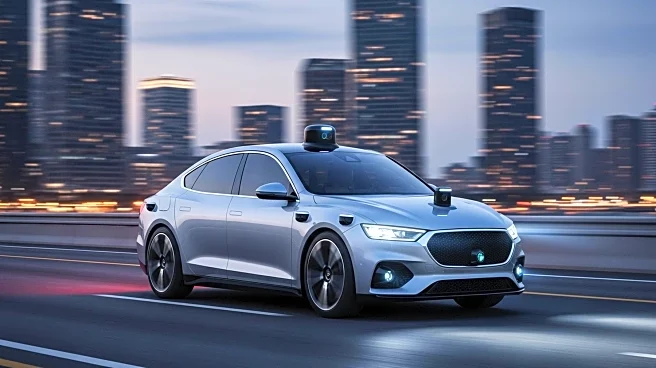What's Happening?
Mercedes-Benz has been identified as having a relatively low crash rate among luxury self-driving cars, according to a study by Davidoff Law Personal Injury Lawyers. The study analyzed crash data for various car models equipped with autonomous driving systems (ADS) and advanced driver-assistance systems (ADAS). Mercedes-Benz's S580 model recorded 0.07 crashes per 10,000 vehicles, demonstrating a 40% better safety performance than Acura's models and 71% better than BMW's vehicles. Despite being a luxury brand, Mercedes-Benz's crash rate is significantly lower than other high-end manufacturers like Jaguar and Tesla, which lead the rankings with higher crash rates. The study suggests that the disparity between ADS and ADAS systems may indicate that fully autonomous technology is being deployed before it is fully ready for consumer roads.
Why It's Important?
The findings of the study highlight the importance of safety benchmarks for autonomous vehicles, especially as luxury brands dominate the higher crash rates. Mercedes-Benz's lower crash rate suggests that its ADAS technology may be more reliable than some fully autonomous systems currently in use. This could influence consumer trust and regulatory standards in the automotive industry, as safety remains a critical concern for self-driving technology. Manufacturers with higher crash rates may face increased scrutiny and pressure to improve their systems, while those with lower rates, like Mercedes-Benz, could gain a competitive advantage in the market. The study underscores the need for standardized safety measures across all autonomous systems, regardless of price point or market positioning.
What's Next?
As the automotive industry continues to evolve, manufacturers may need to address the safety concerns associated with autonomous driving technology. Regulatory bodies could consider implementing stricter safety standards and testing protocols to ensure that all autonomous systems meet a minimum safety threshold before deployment. This could lead to increased research and development efforts by manufacturers to enhance the reliability and safety of their self-driving technologies. Additionally, consumer advocacy groups may push for greater transparency in reporting crash data and safety performance metrics, influencing public perception and purchasing decisions.
Beyond the Headlines
The study's findings may have broader implications for the future of transportation and urban planning. As autonomous vehicles become more prevalent, cities may need to adapt their infrastructure to accommodate these technologies, potentially leading to changes in traffic management and road design. The ethical considerations of deploying autonomous systems that are not fully reliable could also spark debates about liability and accountability in the event of accidents. Furthermore, the disparity in crash rates among luxury brands may prompt discussions about the accessibility and equity of self-driving technology, as safety should not be compromised by cost.











